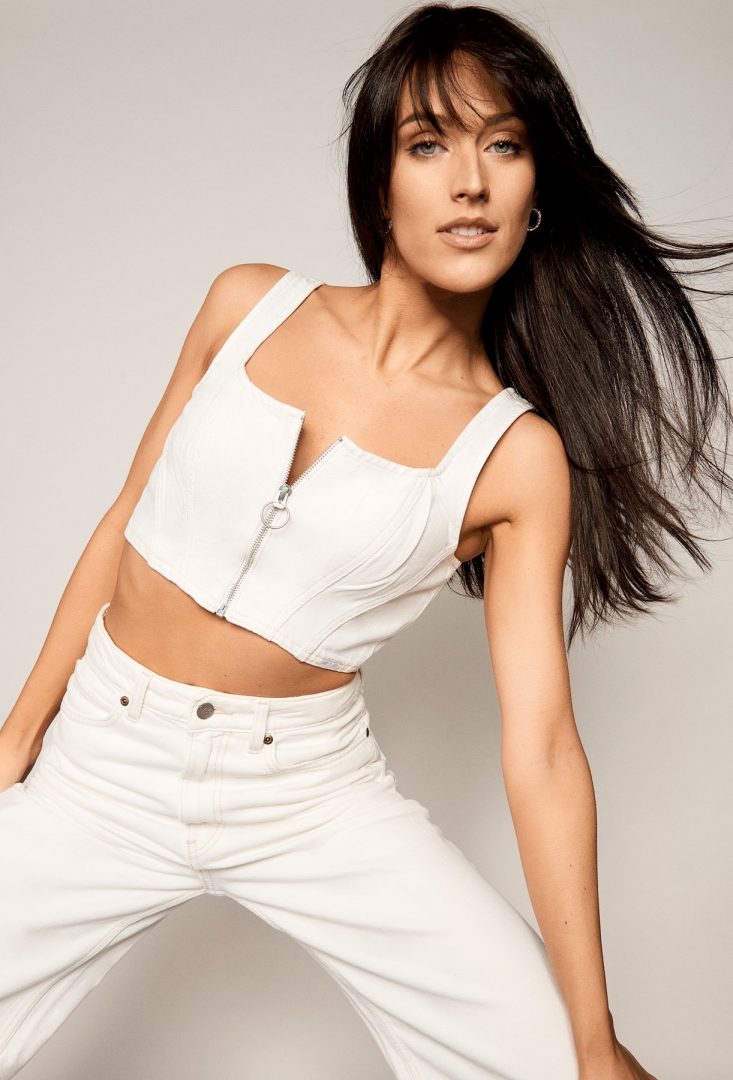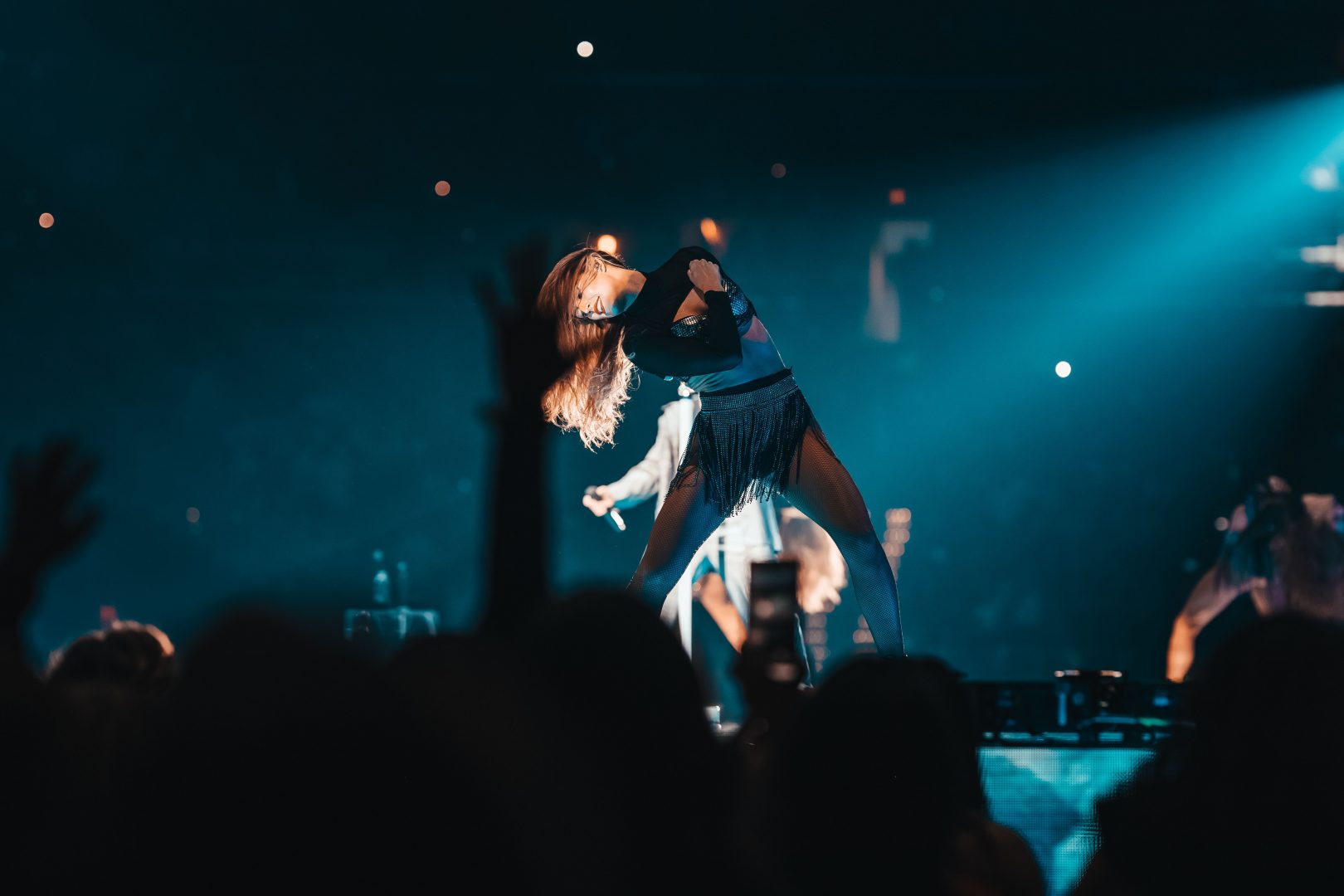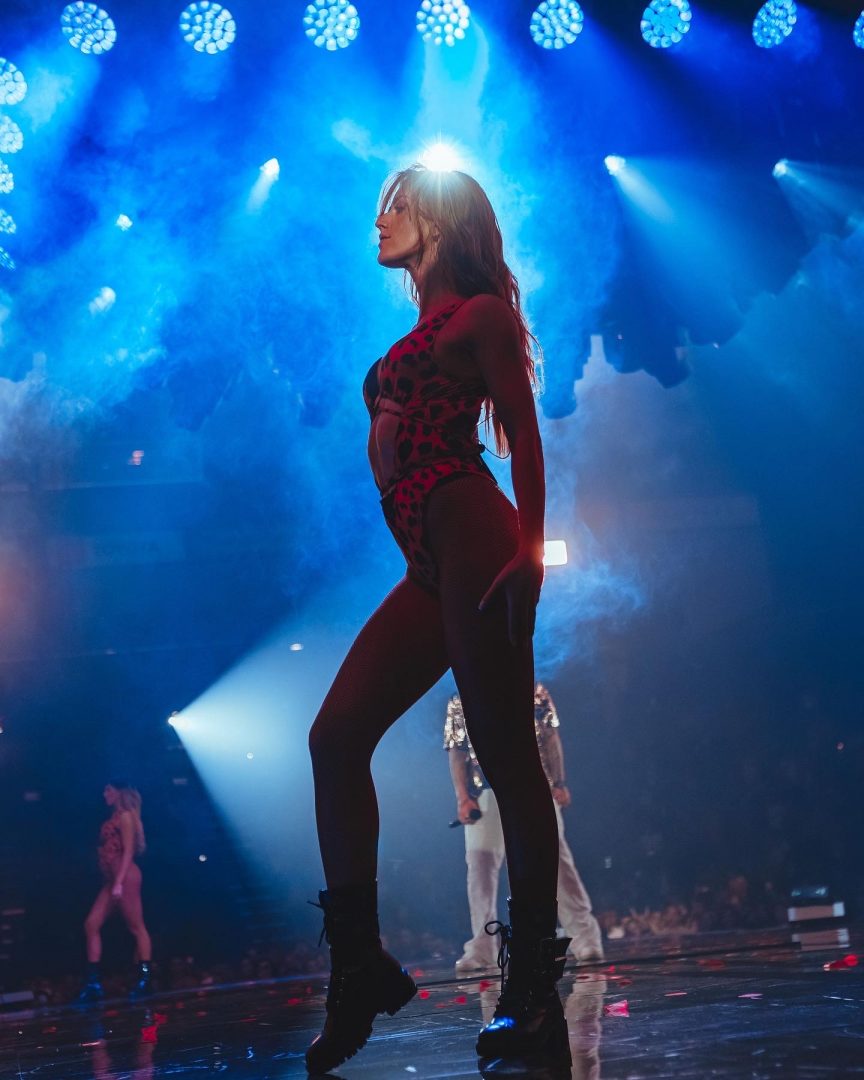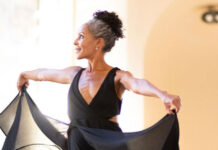Los Angeles-based dancer Jessa Doll has literally seen the world through dance. Originally from Langely, Canada, Jessa’s career has taken her from her hometown to Los Angeles, California to countries around the world on major tours with top artists. Getting there was a process, though, and we caught up with Jessa to find out how she grew her career to what it is and how she stays positive through all the ups and downs of being a dancer auditioning for tours and various roles.
“I grew up being passionate about musical theatre and slowly shifted my focus towards dance,” Jessa told us. Like many young dancers, Jessa trained in a variety of styles at her hometown dance studio, but she wouldn’t stop at recitals. At age 20, Jessa received a visa that would allow her to chase professional dance opportunities in Los Angeles.
“Throughout my years in Los Angeles, I’ve been lucky enough to dance with high-profile artists such as Ariana Grande, Jennifer Lopez, Jeremih, and more. I’ve also had the opportunity to travel and perform around the world for two and a half years with Latin artist Maluma.” Jessa has also appeared in music videos, live shows, and commercials. Oh, and you might have spotted her in movies on TV in Riverdale, Grease, Rise of the Pink Ladies, Chilling Adventures of Sabrina, and Disney’s Freaky Friday. She has also choreographed for upcoming artists DYLN, Julia Wolf, Gina Woods, and others and is a faculty member at the industry favorite studio Millennium Dance Complex in Orange County.
With all of this success, Jessa has truly had a magical career full of exciting experiences and unforgettable projects, but that doesn’t mean she doesn’t face the often rollercoaster-like process of attending auditions and casting calls. Lucky for us, Jessa has a lot of experience and advice in this area that she shared with us.

Showstopper Magazine Online: You’re no stranger to auditions. How would you describe your experiences with auditions overall? What are your top audition tips in general?
Jessa Doll: Auditions can feel scary! But they don’t have to be. Whenever I audition I try to go in with the mindset that all I can do is my best and the rest is completely out of my control—because it is. I like to think of other benefits to me being there other than “getting the job” (ie. A chance for someone new to see me, a good workout, practicing the craft of auditioning—you will get better over time). I always feel best at the auditions I feel prepared for training-wise and don’t put too much pressure on. It also helps if you give yourself grace, if you didn’t do your best you know what to fix for next time.
SMO: While we’re always hoping for success when we attend auditions and casting calls, things don’t always work out. What is the first thing you do when you find out you haven’t gotten the spot you wanted?
Jessa: Sometimes, it’s tough not getting the job or callback you thought you were meant for! I’m a bit of an emotional person so I usually need to sit in the feelings for a day and embrace it. After a day or two, I pick myself back up and say “On to the next!” I truly believe everything happens for a reason.
SMO: What is your attitude toward rejection overall?
Jessa: Rejection can make you feel horrible, bottom line. No one likes to hear it, so you’re not alone and everyone gets rejected at some point, even the people you look up to. You can’t be right for every job or every choreographer, it’s impossible. Once you learn rejection is just part of [the audition process] and don’t let it affect you personally, this industry gets a lot easier.
There is only one of you, and that is special!
SMO: Dance is an extremely competitive industry. How do you stay positive about your own skills and about the other dancers you might be “up against” at auditions?
Jessa: It’s so easy to compare yourself and get down in this industry. It’s also difficult because this is an industry where your validation comes from booking work. You truly have to be your own biggest cheerleader and believe in yourself because that doesn’t always come from your peers. Put the energy into your training, networking, and branding, and you’ll always feel positive that you’ve done everything in your control to put your best foot forward. There is only one of you, and that is special!
SMO: What are some of your most valuable rejection moments?
Jessa: A lot of my rejection moments have come from my looks. I remember when I first started out all I wanted to do was be a dancer at the Disney parks (Paris, Tokyo, Florida, California). I went to all the auditions and always made it down to the very end where they would then do a typecast and look at you in a line. Often you had to be able to play a character in addition to [being] a dancer, so they were very strict on looks. I remember two auditions specifically where they were so excited about me and I turned side profile and they went “ooh..” And pointed to my nose. This was so tough for me to absorb because how could my nose be a deciding factor? This has also happened many times with my height where I’m half an inch too tall. Once I learned that it is what it is, I was able to get over rejection faster. But at first, it was so weird to understand that even the littlest things can be deal-breakers [for the casting company].
Being positive is a skill that needs to be developed and embraced in an industry that is so tough.
SMO: What other advice or perspective would you give about staying positive as a commercial or auditioning dancer?
Jessa: Being positive is a skill that needs to be developed and embraced in an industry that is so tough. I like to imagine I have a shield around myself that rebounds anything negative so it doesn’t affect me, especially the little stuff. Things that seem huge in the moment won’t be of any importance in a month, just learning to brush things off will really help. It’s definitely important to operate out of a place of positivity as you always want to add to a room. If you’re reading as Debbie Downer, no one will want to hire you or have you around. Picking up other hobbies and passions other than dance will also help you stay in a positive mindset!

Putting yourself out there to attend auditions and casting calls is an incredible step on its own. As Jessa shared, sometimes just getting better at auditioning is the success you leave with (every casting call is its own kind of dance class!). While you won’t always know what the final factor was if you don’t get a role, being sure to continue to recognize your skills and strengths is important. You might be half an inch too tall or too short for this role, but don’t dwell on things you can’t change (especially when they’re the awesome details that make you you!).
Jessa’s Tips for a Positive Auditioning Mindset
- Focus on doing your best.
- Take the time you need to react to rejection, but always be moving “on to the next!”
- Appreciate every learning experience.
- Don’t forget that auditioning is a skill in itself.
- Remember that everyone gets rejected, and the reason you don’t get a job might not have anything to do with you.
- Always work on improving your skills and technique, but don’t hold onto rejections based on things you can’t control.
- Be your own biggest cheerleader!
As Jessa said, “All I can do is my best, and the rest is completely out of my control.” In fact, that might just be our new audition mantra.














